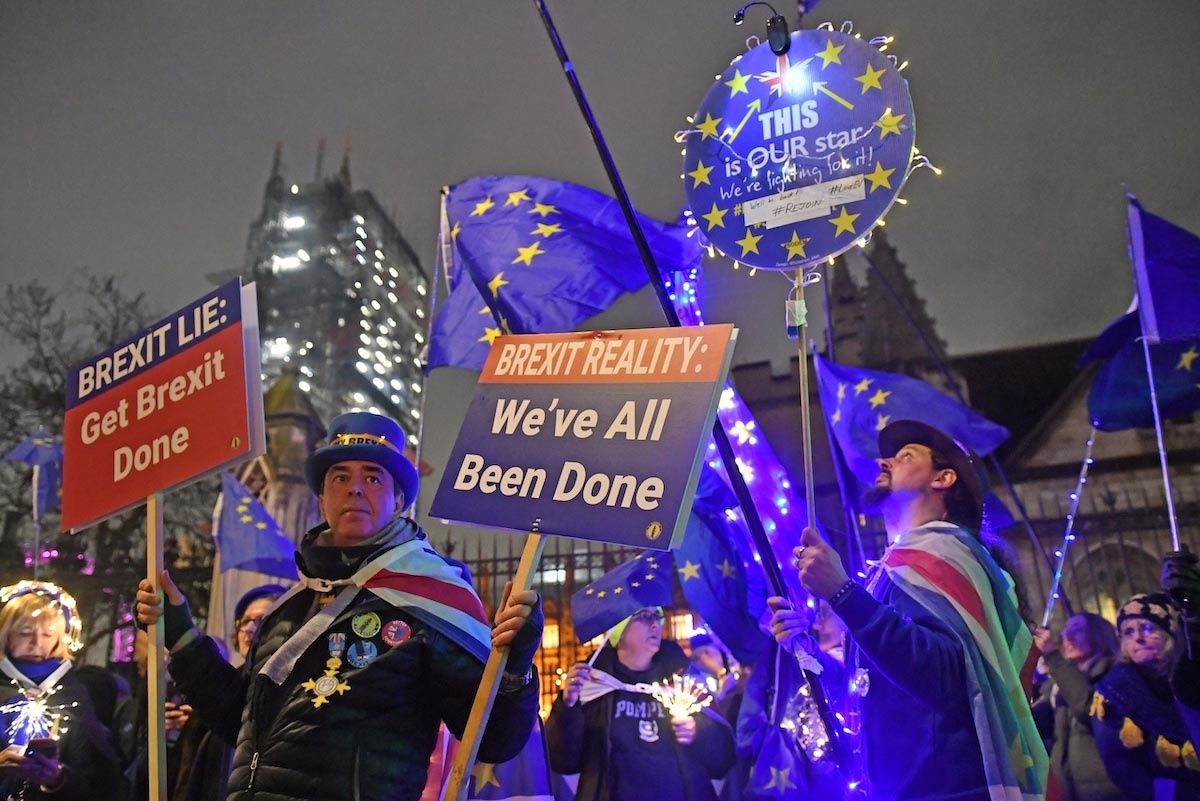February 06, 2020
7: Days after a new prime minister-designate took office in Iraq, seven protesters were killed at an anti-government sit-in in the city of Najaf. Supporters of Moqtada al-Sadr, the powerful cleric with a cult-like following who backs the new PM, threw Molotov cocktails and stabbed demonstrators.
138: At least 138 people deported by the US back to El Salvador in recent years were killed after arriving there, according to Human Rights Watch. The grim tally comes as the Trump administration seeks to tighten restrictions on Central American asylum-seekers.
500,000: Some half a million EU citizens in Britain are yet to apply for "settled status," which would allow them to stay in the country after Brexit is complete. The British government has touted this as a fair scheme, but critics say EU citizens in Britain face losing benefits such as healthcare.
3,000: Several schools in northern Mozambique did not open for the new academic year because of the surge of jihadist terror attacks. The closure affects some 3,000 pupils in Cabo Delgado, the gas rich province that's become a hotbed of Islamist violence.
More For You
- YouTube
China was largely absent from the core conversations at the 2026 Munich Security Conference. That, says Ian Bremmer, is telling.
Most Popular
- YouTube
At the 2026 Munich Security Conference, Brad Smith announces the launch of the Trusted Tech Alliance, a coalition of global technology leaders, including Microsoft, committing to secure cross-border tech flows, ethical governance, and stronger data protections.
When the US shift from defending the postwar rules-based order to challenging it, what kind of global system emerges? CFR President Michael Froman joins Ian Bremmer on the GZERO World Podcast to discuss the global order under Trump's second term.
TODAY at 12 pm ET: Watch our Global Stage live premiere from the Munich Security Conference
Feb 13, 2026
Tune in today at 12pm ET/6pm CET for the live premiere of our Global Stage from the 2026 Munich Security Conference, where our panel of experts takes aim at the latest global security challenges. NY Times National Security Correspondent David Sanger moderates the discussion with Benedetta Berti, Secretary General, NATO Parliamentary Assembly; Ian Bremmer, President & Co-founder, Eurasia Group & GZERO Media; Dr. Wolfgang Dierker, Global Head of Government Affairs, SAP; and Brad Smith, Vice Chair & President, Microsoft.
© 2025 GZERO Media. All Rights Reserved | A Eurasia Group media company.
